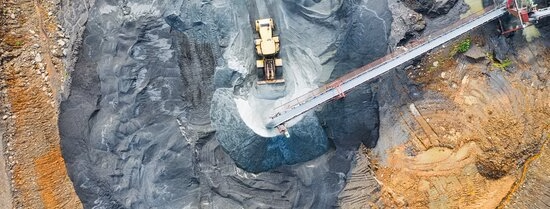Rare metals are important in building the technology the EU needs to realize energy independence, and to achieve the political goals set out in the Green Deal by the European Commission. It is a market that is currently dominated by China.
"There is growing awareness among western countries that they should not be totally dependent on China anymore,” dr Jojo Nem Singh says. “The fundamental issue is that production and processing of rare earth elements is done almost exclusively in China.” Nem Singh is an assistant professor at the International Institute of Social Studies (ISS) of Erasmus University Rotterdam.
The cost of autonomy
Born in the Philippines, Nem Singh has a pragmatic view on the rise of China – almost uncluttered by the global power struggles often shaping political debates in European capitals. The premise of his most recent paper (“Mining our way out of the climate change conundrum”) is that the costs of mineral extraction need to be shared more equally.
“To achieve its desired strategic autonomy, the EU has to face the reality that our production and consumption have been accommodated by China for many years,” he says.
Strategic autonomy also means becoming more independent from the United States, Russia, and South Africa. “We have gotten used to paying low prices for commodities, electronics, and consumer goods. If Europe wants to develop regional supply chains, we need to consider their actual value. Europe needs to start thinking about its own role in the extraction processes needed for the green transition.”
Sacrifice
“Politics of sacrifice” is an appropriate concept that Nem Singh draws from the works of human geographers, signifying the ethical question behind the policy. “Mining rare metals can be fraught with high environmental, social and health costs,” he says. “There is always someone, somewhere, who sacrifices something and, right now, this is not openly discussed in the EU. By refusing to build the much-needed new mines for the green transition ourselves, Europe simply pushes these harmful down the line to developing countries.”
Whereas communities at the mining frontier often suffer the most damage, these areas also tend to benefit from mineral development as a result of economic gains from extraction. “Rather than continuously believing that market mechanisms will solve problems like market failures and redistribution of environmental goods and bads, the EU must not only pass stricter legislation regarding environmental issues and labour issues, it must also recognize that when new mining projects are rejected in Europe, important metals like cobalt, rare earths and lithium need to be outsourced elsewhere under dramatically weaker social, legal and environmental frameworks.”
Fundamental obstacle
"The complexity of the EU decision-making process has been a fundamental obstacle to the green transition."
Nem Singh identifies several disconnects between the public perception and the reality of mining: the expectation of consumer products to be produced cheaper while demanding high ethical standards in the production processes, the delayed reaction of the EU regarding resource dependence, the highly ambitious political goals set out in the Green Deal, and the political realities of how member states make decisions regarding mining projects across the continent.
“The complexity of the EU decision-making process has been a fundamental obstacle to the green transition,” he says. “Take trade policies, for example. The EU Commission has direct policy competence and can craft policies applicable to all member states, but mining policy is a national competency and therefore subject to domestic political discussions.”
Fieldwork performed by Nem Singh and his colleagues shows that EU goals often clash with domestic environmental and social policies. “To realize an EU strategy of setting up domestic or regional supply chains for the resources it needs, member states should be lining up right now to start developing mining industries,” he says. “Instead, it is really hard for national governments to open up new mines.”
Luxury position
With the climate crisis a reality, EU industrial competitiveness depends on securing all kinds of rare metals in markets fully dominated by China. “The EU still thinks it is in the luxury position of procuring all primary materials in a world market that sets market prices for commodities efficiently and fairly all the time,” Nem Singh says. “But with politics and economy becoming ever more intertwined, that is no longer true. Countries such as China, Brazil, and South Africa know full well that western countries are in dire need of rare earth metals. China has used its monopoly position to control prices, support its own companies and outcompete its counterparts abroad. And, of course, the Chinese government learned how to develop their own technology in processing, giving them a competitive advantage in the medium-term.”
A new perspective
The ambitious goals set out in the Green Deal could change things for the better, as it fuels the political will to debate what is needed. Nem Singh: “Strategic access to rare earth metals is not only a matter of global trade. Importantly for the EU, a key issue is the willingness to invest in a regional supply chain.”
This will require a shift in political attitude as mining intrinsically is a high capital, high cost, undertaking – looking at ten years of losing money, under the constant uncertainty of a price collapse as commodity markets are very volatile. “That is what EU decision makers will need to explain to citizens. Access to resources, being of such strategic importance, can no longer be looked at from a market perspective.”
- Researcher
- More information
This interview is part of the Leiden-Delft-Erasmus white paper 'Critical materials, Green Energy and Geopolitics: a Complex Mix'.
Text: Hans van Wetzels
Read all interviews from the White Paper in the Knowledge File Critical Materials and the Energy Transition on the LDE-website.- Related content

